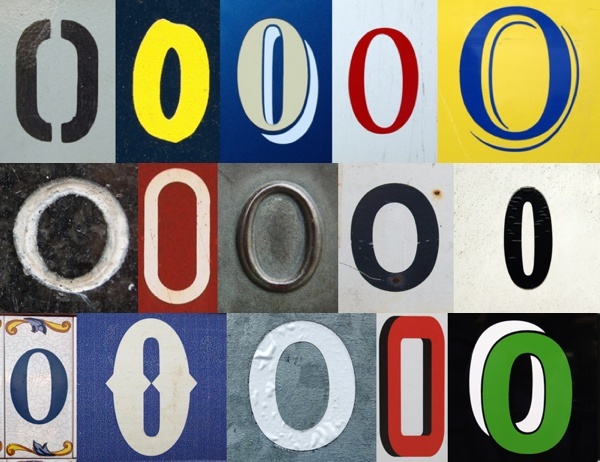Trailing Zeroes!
 What is the exact number of trailing zeroes in 1000! (1000 factorial) ?
What is the exact number of trailing zeroes in 1000! (1000 factorial) ?
Trailing zeroes --- how many zeroes are at the end of the multiplied-out factorial.
The answer is 249.
This section requires Javascript.
You are seeing this because something didn't load right. We suggest you, (a) try
refreshing the page, (b) enabling javascript if it is disabled on your browser and,
finally, (c)
loading the
non-javascript version of this page
. We're sorry about the hassle.
6 solutions
oh, I forgot to say that [N] = the greatest integer function of N
there are 1000 ÷ 5 = 200 multiples of 5 between 1 and 1000. The next power of 5, namely 25, has 1000 ÷ 25 = 40 multiples between 1 and 1000. The next power of 5, namely 125, will also fit in the expansion, and has 1000 ÷ 125 = 8 multiples between 1 and 1000. The next power of 5, namely 625, also fits in the expansion, and has 1000 ÷ 625 = 1.6... um, okay, 625 has 1 multiple between 1 and 1000. (I don't care about the 0.6 "multiples", only the one full multiple, so I truncate my division down to a whole number.)
In total, I have 200 + 40 + 8 + 1 = 249 copies of the factor 5 in the expansion, and thus: 249 trailing zeroes in the expansion of 1000!
We wish to find the number of zeros at the end of 1000! = 1000 999 998 997 .... 4 3 2 1
We examine the factors of 1000! to see which can be used to produce multiples of 10.
For 1000!, each multiple of 5 - taken together with some even number - contributes a multiple of
-
Each multiple of 25 - taken together with some multiple of 4 - contributes two multiples of 10.
Each multiple of 125 - taken together with some multiple of 8 - contributes three multiples of 10.
We can count each multiple of 5 in 1000! once. Then we can count each multiple of 25 in 1000!
once in order to altogether count each multiple of 25 twice. Then we can count each multiple of
125 in 1000! once in order to altogether count each multiple of 125 thrice.
There are 1000/5 = 200 multiples of 5 in 1000!
There are 1000/25 = 40 multiples of 25 in 1000!
There are 1000/125 = 8 multiples of 125 in 1000!
There are 1000/625=1 multiples of 625 in 1000!
Adding them together, we have 200+40+8+1 = 249 zeros at the end of 1000!.
We know that a number gets a zero at the end of it if the number has 10 as a factor.
But since 5×2 = 10, I need to account for all the products of 5 and 2.
Looking at the factors in the above expansion, there are many more numbers that are multiples of 2 (2, 4, 6, 8, 10, 12, 14,...) than are multiples of 5 (5, 10, 15,...). That is, if I take all the numbers with 5 as a factor, I'll have way more than enough even numbers to pair with them to get factors of 10 (and another trailing zero on my factorial).
So to find the number of times 10 is a factor, all I really need to worry about is how many times 5 is a factor in all of the numbers.
Okay, there are 1000 ÷ 5 = 200 multiples of 5 between 1 and 1000.
The next power of 5, namely 25, has 1000 ÷ 25 = 40 multiples between 1 and 1000.
The next power of 5, namely 125, will also fit in the expansion, and has 1000 ÷ 125 = 8 multiples between 1 and 1000.
The next power of 5, namely 625, also fits in the expansion, and has 1000 ÷ 625 = 1.6... um, okay, 625 has 1 multiple between 1 and 1000. (I don't care about the 0.6 "multiples", only the one full multiple, so I truncate my division down to a whole number.)
In total, I have 200 + 40 + 8 + 1 = 249 copies of the factor 5 in the expansion, and thus 249 trailing zeroes in 1000!
Legendry!
1000!= 402387260077093773543702433923003985719374864210714632543799910429938512398629020592044208486969404800479988610197196058631666872994808558901323829669944590997424504087073759918823627727188732519779505950995276120874975462497043601418278094646496291056393887437886487337119181045825783647849977012476632889835955735432513185323958463075557409114262417474349347553428646576611667797396668820291207379143853719588249808126867838374559731746136085379534524221586593201928090878297308431392844403281231558611036976801357304216168747609675871348312025478589320767169132448426236131412508780208000261683151027341827977704784635868170164365024153691398281264810213092761244896359928705114964975419909342221566832572080821333186116811553615836546984046708975602900950537616475847728421889679646244945160765353408198901385442487984959953319101723355556602139450399736280750137837615307127761926849034352625200015888535147331611702103968175921510907788019393178114194545257223865541461062892187960223838971476088506276862967146674697562911234082439208160153780889893964518263243671616762179168909779911903754031274622289988005195444414282012187361745992642956581746628302955570299024324153181617210465832036786906117260158783520751516284225540265170483304226143974286933061690897968482590125458327168226458066526769958652682272807075781391858178889652208164348344825993266043367660176999612831860788386150279465955131156552036093988180612138558600301435694527224206344631797460594682573103790084024432438465657245014402821885252470935190620929023136493273497565513958720559654228749774011413346962715422845862377387538230483865688976461927383814900140767310446640259899490222221765904339901886018566526485061799702356193897017860040811889729918311021171229845901641921068884387121855646124960798722908519296819372388642614839657382291123125024186649353143970137428531926649875337218940694281434118520158014123344828015051399694290153483077644569099073152433278288269864602789864321139083506217095002597389863554277196742822248757586765752344220207573630569498825087968928162753848863396909959826280956121450994871701244516461260379029309120889086942028510640182154399457156805941872748998094254742173582401063677404595741785160829230135358081840096996372524230560855903700624271243416909004153690105933983835777939410970027753472000000000000000000000000000000000000000000000000000000000000000000000000000000000000000000000000000000000000000000000000000000000000000000000000000000000000000000000000000000000000000000000000000000000000000000000000000000000000000000000000000000000.
Now count the number of trailing zeroes.
Which calculator did you use to do that?
multiples of 5 between 1 to 1000 ==>1000/5 =200
multiples of 5^2 or 25 between 1 to 1000 ==>1000/25 =40
multiples of 5^3 or 125 between 1 to 1000 ==>1000/125 =8
multiples of 5^4 or 625 between 1 to 1000 ==>1000/625 =1
thus, total number of trailing zeros in 1000! are 200 + 40 + 8 + 1 = 249
It's 249 for sure... We have a renown formula for calculating this... i.e. Index= 1000/5 + 1000/5^2 + 1000/5^3 +1000/5^4 = 200 + 40 + 8 + 1 = 249
We know that the number of 1 0 that will appear in the prime factorization of a number is also the number of trailing zeroes of the number and 1 0 = 5 × 2
Obviously, in the prime factorization of 1 0 0 0 ! , 2 will have a greater exponent (number of 2 which appears in the prime factorization of 1 0 0 0 ! ) than 5 will have. Therefore, we must find the maximum possible value of N such that 5 N divides 1 0 0 0 ! .
[ ( 1 0 0 0 / 5 ) ] = 2 0 0
[ ( 2 0 0 / 5 ) ] = 4 0
[ ( 4 0 / 5 ) ] = 8
[ ( 8 / 5 ) ] = 1
[ ( 1 / 5 ) ] = 0
Therefore,
N = 2 0 0 + 4 0 + 8 + 1 = 2 4 9 trailing zeroes